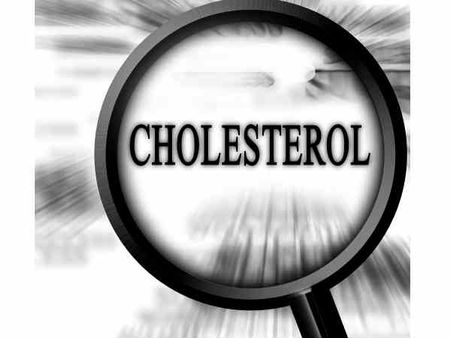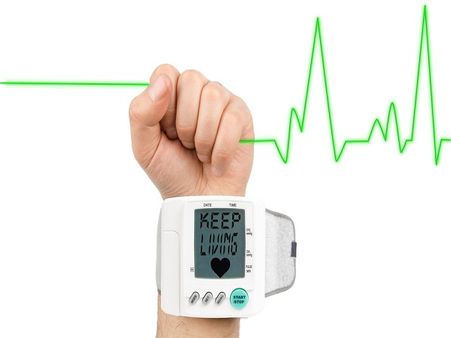Just In
- 3 hrs ago

- 4 hrs ago

- 8 hrs ago

- 9 hrs ago

Don't Miss
- Movies
 Digangana Suryavanshi Gets Ready For Her Next Film 'Krishna From Brindavanam'- See Mahurat Pic
Digangana Suryavanshi Gets Ready For Her Next Film 'Krishna From Brindavanam'- See Mahurat Pic - Finance
 Penny Stock Bags Back-To-Back Orders Worth Rs 500 Mn, 110 Mn; Shares Hit Upper Circuit
Penny Stock Bags Back-To-Back Orders Worth Rs 500 Mn, 110 Mn; Shares Hit Upper Circuit - Sports
 Pakistan vs New Zealand: Mohammad Rizwan Absent from Team's Training Session Ahead of 4th T20I
Pakistan vs New Zealand: Mohammad Rizwan Absent from Team's Training Session Ahead of 4th T20I - News
 Centre Seeks Modification Of 2012 2G Spectrum Verdict In Supreme Court
Centre Seeks Modification Of 2012 2G Spectrum Verdict In Supreme Court - Education
 Meet Naima Khatoon, First Vice Chancellor of AMU, Know Her Background and Education Qualification
Meet Naima Khatoon, First Vice Chancellor of AMU, Know Her Background and Education Qualification - Technology
 Xiaomi Robot Vacuum Cleaner S10, Handheld Garment Steamer, and Redmi Buds 5A Launched in India
Xiaomi Robot Vacuum Cleaner S10, Handheld Garment Steamer, and Redmi Buds 5A Launched in India - Automobiles
 Nissan Magnite Achieves 1 Lakh Unit Sales Milestone: Consistency Helps
Nissan Magnite Achieves 1 Lakh Unit Sales Milestone: Consistency Helps - Travel
Kurnool's Hidden Gems: A Guide To Exploring India's Lesser-Known Treasures
World Heart Day: A 10-point Checklist For A Healthy Heart
The heart is a fascinating organ. It is the size of our palm, but without this, we'd be lifeless. It is one of the vital organs that pumps blood through your body, supplies nutrients, vitamins, oxygen, glycogen, etc. along with the blood that is required by every cell in our body and keeps us alive.
It is located in the middle compartment of the chest, in between the lungs. Arteries and ventricles weave in and out of the heart, circulating the blood and other substances. These together comprise the circulatory system of our body. It is very important for us to maintain the health of this system.

Is it right on our part to put this organ's health at risk?
Here are 10 things to keep in mind to keep your heart healthy and pumping -

1. Managing Cholesterol Levels:
Cholesterol is a sterol, a lipid molecule synthesized by all animal cells to maintain cell membrane integrity and fluidity. Cholesterol is both good and bad. When present in moderate levels, it is extremely important for maintaining the cell structure. But when present in excess, it puts us at very high risks of heart attacks and sometimes heart failures. Which is why it is very important to maintain your cholesterol level.
One of the best ways to do this is by reducing and, if possible, completely avoiding foods like meat, cheese, dairy products, hydrogenated oils, fried and processed foods that are only rich in fat and provide no other nutrition. Switch to cholesterol-reducing foods, like oats, bean, eggplant, okra, barley, soy, soy products, fruits, foods rich in fibre, etc.
Anything below 200 mg/dL is considered healthy cholesterol. Exercising, eating healthy, keeping your weight in check, not smoking, etc. will help to keep these levels in check.

2. Managing Sugar Levels:
Just like cholesterol, sugar is essential in moderate quantities as it is a source of energy for all the functions that our body performs. When sugar is consumed, it enters the bloodstream. As per the body's requirement, sugar is converted to energy molecules. The remainder is converted to glycogen and stored inside the cells for further use.
When the cells get saturated with glycogen, sugar starts to accumulate in the blood and it leads to high blood sugar levels. Insulin can no longer perform its role, leading to a condition called diabetes. If not treated, the blood vessels lose their flexibility and become rigid. This could lead to cardiovascular diseases.
To avoid these, the first step is to consume foods that are not too rich in sugar. Fibre-rich foods are a man's best friend when it comes to maintaining sugar and cholesterol levels. Stay hydrated and exercise regularly. Carbs need to be consumed in limited quantities. Whatever you eat, be mindful of your portions; this small step can make a big difference.

3. Maintaining Body Weight:
Obesity has been reported to be the cause of many health ailments. High levels of triglycerides and LDL cholesterol, low levels of HDL cholesterol, diabetes, and high blood pressure in an obese person contribute to high risks of cardiovascular diseases. Being obese has also been associated with hypertension and left-ventricle hypertrophy or an enlarged left ventricle of the heart.
All these contribute to heart failures in 45% of the American population. It is thus important to maintain a healthy weight. Make it a point to regularly check your Body Mass Index (BMI) to understand the weight that is ideal for your height and try to maintain it.

4. Stable Blood Pressure:
High blood pressure or hypertension causes physical stress on the muscles of the heart. An existing condition of hypertension leads to plaque build-up in arteries. Cholesterol, fat and other substances accumulate in the arteries, narrowing them, as a result of which their elasticity is lost and the ability to pump blood effectively is impaired.
In more serious cases, hypertension leads to the thickening of the muscles of the heart. This means the ability of the heart muscles to relax in between beats is affected. This doesn't allow the heart to pump blood to its full capacity, eventually leading to heart failure.

5. Regular Exercise:
This is a universal solution to all problems. There's no better gift you can give your heart than setting aside time for at least 4-5 times a week to exercise. Physical exertion keeps all the muscles in our body healthy, including heart muscles. Oxygenated blood is effectively pumped to all parts of the body keeping it healthy and active. Exercise has been reported to improve the contraction and relaxation of heart muscles drastically.
If you want to keep your heart healthy, it is essential that you find your passion in a form of physical exercise.

6. Heart-friendly Diet:
Food is the fuel for our soul and body. When you eat right, you close the doors of your body to 80% of diseases. Our body requires a specific amount of nutrients and minerals to function without any hindrance. When we load our plate with junk, we open our body to many diseases to come and dwell in our body. Every body type is different. What might be vital for your body, might just be a requirement for the others. So, the first step is to understand what type of food your body requires.
Understanding this will keep your heart healthy and keep you away from cardiovascular diseases.

7. Getting Enough Sleep:
Half of us are so busy being awake in the night, watching movies and doing other things that we don't understand how important getting enough sleep is. We stay awake in the night, wake up early to get to college or work, and we experience cravings for unhealthy foods to satisfy our mood which is a direct cause of lack of sleep. We get lazy, don't move, and this continues every day. This is an open invitation to diseases to come to pay you visits often.
It's a chain reaction. Stick to a strict sleep time and make sure your body gets enough rest before you kickstart your day the next day.

8. Say No To Smoking:
The smoke inhaled from cigarettes enters the cells of our body and damages the lining of the arteries. This leads to a fatty build up in the arteries called atheroma. This narrows the arteries causing heart attacks and heart failures.

9. Moderate Alcohol Consumption:
Consumption of alcohol at moderate levels is actually healthy for the body. It keeps LDL cholesterol build up to a bare minimum. It raises HDL or the good cholesterol. It stops the blood from clotting. These can prove to be really good for your heart. But overdoing it reverses the effects. It could lead to heart and liver failure. Indulge in an occasional drink, just don't overdo it.

10. Regular Heart Screenings:
Some people believe that it's not required to go to a doctor until you are suffering from something. It's not at all true. If you don't get yourself checked regularly, how will you know what you might be suffering from? Thus, it is important to go for regular heart screenings and be prepared if something comes in the way of your and your heart's health.
These are not changes that will show their results in a day or two. You need to implement these and make a lifestyle choice that will let you be on the safer side. Make these choices and your heart will reward you with a good, long and healthy life.
-
 health3 Common Foods You Shouldn’t Keep In Fridge After Heating
health3 Common Foods You Shouldn’t Keep In Fridge After Heating -
 healthUnveiling the Significance of Breakfast in Daily Diet; What Happens When You Skip Breakfast?
healthUnveiling the Significance of Breakfast in Daily Diet; What Happens When You Skip Breakfast? -
 healthUnlocking The Power of Hydration: List Of High Water Content Foods You Need To Add To Your Diet Now!
healthUnlocking The Power of Hydration: List Of High Water Content Foods You Need To Add To Your Diet Now! -
 healthAt What Age Should You Start Getting Yearly Medical Checkups?
healthAt What Age Should You Start Getting Yearly Medical Checkups? -
 healthGiving Your Metabolism a Spicy Kick with Indian Spices!
healthGiving Your Metabolism a Spicy Kick with Indian Spices! -
 healthDetoxify Your Body with These Refreshing Drinks!
healthDetoxify Your Body with These Refreshing Drinks! -
 healthAyurvedic Herbs And Spices Commonly Used During Onam And Their Benefits
healthAyurvedic Herbs And Spices Commonly Used During Onam And Their Benefits -
 healthWhat Are The Best Foods To Include In My Diet For Healthy, Glowing Skin?
healthWhat Are The Best Foods To Include In My Diet For Healthy, Glowing Skin? -
 healthStaying Active During Onam: Fun Ways to Include Exercise in the Festivities
healthStaying Active During Onam: Fun Ways to Include Exercise in the Festivities -
 healthGhee: How Much Can You Eat A Day? Who Should Avoid It?
healthGhee: How Much Can You Eat A Day? Who Should Avoid It? -
 health10 Quick and Nutritious Indian Breakfast Ideas
health10 Quick and Nutritious Indian Breakfast Ideas -
 healthParsi New Year 2023 (Navroz): 4 Healthy Parsi Cuisine To Try
healthParsi New Year 2023 (Navroz): 4 Healthy Parsi Cuisine To Try


 Click it and Unblock the Notifications
Click it and Unblock the Notifications



